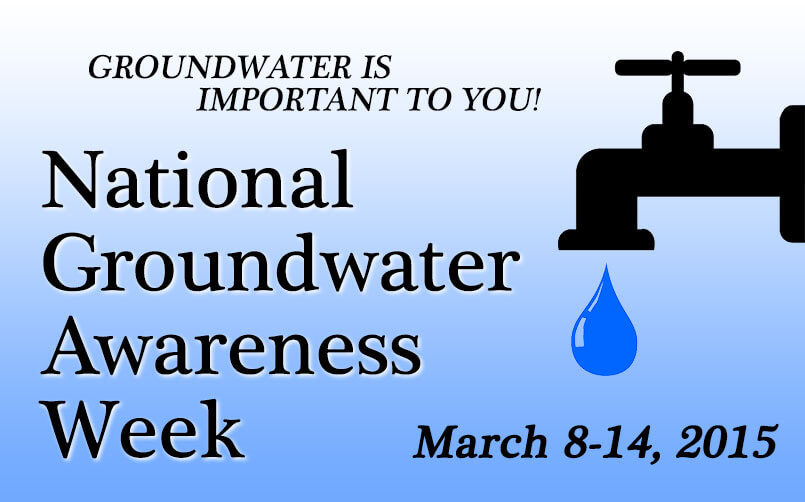National Groundwater Awareness Week is March 8-14, 2015
MADISON–As part of National Groundwater Awareness Week (March 8-14, 2015), the Wisconsin Department of Health Services (DHS) and Department of Natural Resources (DNR) join the National Ground Water Association in encouraging Wisconsin residents to promote public health and the health of the environment by taking steps to protect groundwater.
“Groundwater plays an important role in the health of many Wisconsin families and there are simple things people can do to protect this vital resource and promote a healthy Wisconsin,” says Dr. Henry Anderson, Chief Medical Officer of the Bureau of Environmental and Occupational Health at DHS.
“Over half of Wisconsin residents rely on groundwater for their drinking water supply, getting water from individual household water wells or public water systems,” notes Russell Rasmussen, DNR Water Division Administrator and chair of the state’s Groundwater Coordinating Council. “Our health and our economy depend on adequate supplies of safe groundwater.”
Private water well owners can make a difference in their water quality by how they manage their well systems. People whose household water comes from public water systems can also make a difference in groundwater quality by how they store, use, and dispose of hazardous household substances, or how well they maintain their septic systems.
Residents can learn about the quality of drinking water through Public Water Supply Consumer Confidence Reports, or by testing their private wells. Information on accessing Consumer Confidence Reports or submitting private well water samples to a laboratory can be found on the Department of Natural Resources (DNR) website(link is external).
Understanding your drinking water quality enables you to take action to protect groundwater against contamination:
For those with private wells:
- Have your well system professionally inspected annually.
- Have your water tested(link is external) for bacteria and nitrates annually.
- Remove possible contamination sources away from your wellhead.
- Be current on the cleaning and inspection of your septic system.
- Properly decommission any abandoned wells(link is external) using a licensed professional.
- Join DNR’s March 24th Chat on Private Wells by going to dnr.wi.gov(link is external).
For those using public water supplies:
- Be informed about your home’s public water supply(link is external) and that of facilities where you work or visit by regularly reading Consumer Confidence Reports .
Things everyone can do:
- Use hazardous home and yard chemicals according to manufacturer’s recommendations, and properly dispose(link is external) of them after use.
- Properly dispose of unused pharmaceuticals(link is external).
- Find out how much water(link is external) your household uses, and then install a water-saving device.
- Modify your water use to conserve water(link is external).
You can learn more about current groundwater conditions in Wisconsin from the recently released annual report(link is external)from the Wisconsin Groundwater Coordinating Council (GCC). The GCC Report provides information on the current status of groundwater quality and quantity for the state, includes an assessment of groundwater management programs, lists current and anticipated groundwater problems, and recommends actions for addressing those problems.
For more information on groundwater and your health, please see the following DNR and DHS resources:
DNR Groundwater Website (link is external)
DNR Drinking Water Website(link is external)
DHS Water Issues Website
References:
https://www.dhs.wisconsin.gov/news/releases/03092015.htm
http://dnr.wi.gov/topic/Groundwater/
Contacts:
Bill Cosh, DNR, 608-267-2773


